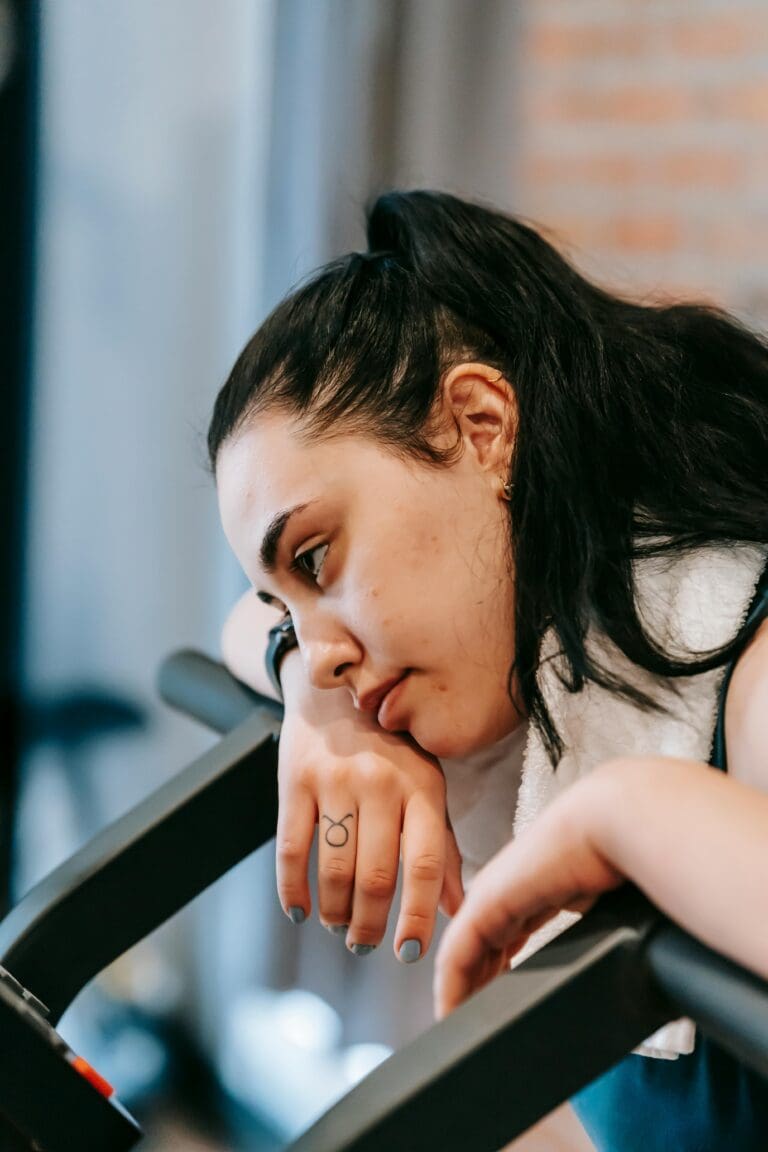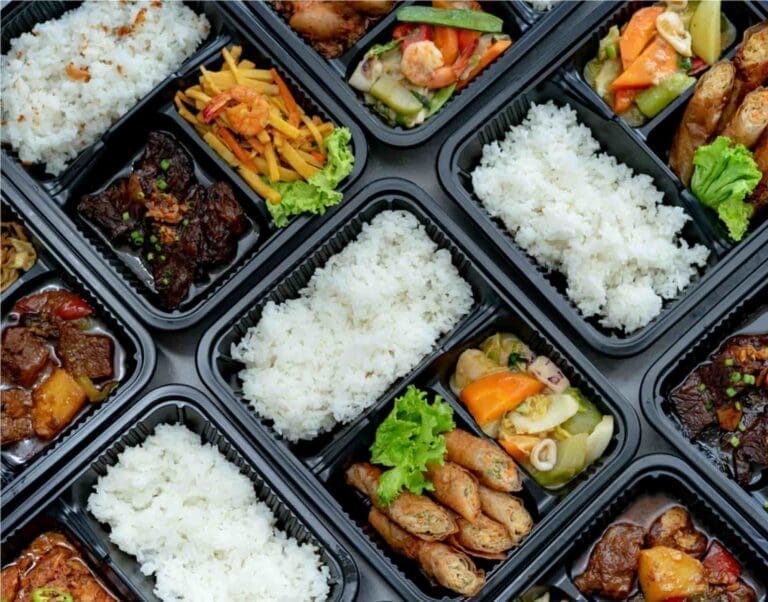
Hey there, fitness enthusiasts! Holly Roser here, your go-to personal trainer in San Mateo. Today, we’re diving into a topic that’s been buzzing in the health world: the fascinating connection between weight loss and our gut bacteria. Buckle up, because we’re about to embark on a journey through your microbiome that might just change the way you think about shedding those extra pounds!
Introduction: The Gut-Weight Connection
You’ve probably heard the saying, “You are what you eat.” Well, it turns out there’s more truth to that than we ever imagined. Our bodies are home to trillions of tiny tenants – bacteria that make up our gut microbiome. These little guys aren’t just freeloaders; they’re active participants in our health, including our weight management efforts.
As a personal trainer who’s seen countless clients struggle with weight loss, I’ve learned that sometimes, the key to success isn’t just about what you’re putting on your plate or how many burpees you’re doing. It’s about understanding the complex ecosystem inside your gut and how it influences your body’s ability to lose weight.
So, grab a kombucha (your gut bacteria will thank you), and let’s explore how these microscopic allies can be your secret weapon in the battle of the bulge!
The Gut Microbiome: Your Internal Weight Loss Ally
Before we dive into the nitty-gritty, let’s get acquainted with our gut’s little helpers. Your microbiome is like a bustling city of bacteria, each with its own job to do. Some are the construction workers, building vitamins and breaking down fiber. Others are like the cleanup crew, dealing with toxins and keeping things running smoothly.
Meet Your Microbiome
Your gut hosts an estimated 100 trillion bacteria – that’s more than ten times the number of cells in your entire body! These bacteria aren’t just passive passengers; they’re actively involved in:
- Digesting food
- Producing vitamins
- Regulating your immune system
- Influencing your metabolism
- And yes, playing a role in weight management
Recent research has shed light on just how crucial these tiny tenants are to our waistlines. A study published in the journal “Nature” found that the composition of our gut microbiome can significantly impact our body’s ability to extract energy from food and store fat.
“The gut microbiome composition in individuals with obesity differs from that of lean individuals, suggesting a potential role for gut microbes in the development of obesity.”
This quote from the study highlights a key finding: the types of bacteria in your gut might be influencing your weight more than you realize (Grembi et al., 2021).
The Bacterial Balancing Act
Now that we’ve met our microscopic friends, let’s talk about how they can tip the scales (pun intended) in your favor. It’s all about balance – just like in your workout routine!
The Good, The Bad, and The Ugly (Bacteria)
Not all gut bacteria are created equal when it comes to weight loss. Some bacterial strains have been linked to leanness, while others seem to be more prevalent in individuals struggling with obesity. It’s like having a garden – you want to nurture the beneficial plants and weed out the troublemakers.
A fascinating study published in the “International Journal of Obesity” found that certain bacterial species, particularly those from the Bacteroidetes family, were more abundant in lean individuals. On the flip side, people with obesity tended to have higher levels of Firmicutes bacteria (Johnson et al., 2020).
“Our findings suggest that the ratio of Firmicutes to Bacteroidetes in the gut microbiome may be a potential biomarker for obesity and a target for therapeutic interventions.”
This revelation opens up exciting possibilities for personalized weight loss strategies based on your unique gut bacterial profile. Imagine a future where your personal trainer (ahem, like yours truly) could tailor your diet and exercise plan based on the specific bacteria in your gut!
How Gut Bacteria Influence Weight Loss
You might be wondering, “Holly, how exactly do these tiny bacteria affect my weight?” Great question! Let’s break it down:
1. Calorie Extraction
Believe it or not, some gut bacteria are overachievers when it comes to extracting calories from food. If you have an abundance of these efficient calorie-extractors, you might be getting more calories from your food than you bargained for. It’s like having a super-efficient construction crew that doesn’t know when to quit!
2. Appetite Regulation
Your gut bacteria don’t just sit around; they’re chatty little things. They communicate with your brain through various chemical signals, influencing your appetite and food cravings. Some bacteria might be whispering “eat more cake,” while others are encouraging you to reach for that kale salad.
3. Inflammation
Certain types of gut bacteria can promote inflammation in your body, which has been linked to obesity and metabolic disorders. It’s like having a constant low-grade fire in your system, making weight loss an uphill battle.
4. Metabolism Modulation
Your gut microbiome plays a role in regulating your metabolism. Some bacteria can help boost your metabolic rate, while others might be slowing it down. It’s like having a thermostat for your body’s energy use, and your bacteria have their hands on the dial.
A groundbreaking study published in “Cell Metabolism” unveiled how specific gut bacteria can influence metabolism and fat storage. The researchers found that certain bacterial strains could enhance the body’s ability to burn fat and improve insulin sensitivity (Zhang et al., 2023).
“Our study demonstrates that specific gut bacterial species can modulate host metabolism, potentially offering new avenues for obesity treatment through microbiome manipulation.”
This research opens up exciting possibilities for developing probiotic supplements or dietary interventions that could boost your metabolism and support weight loss efforts. At Holly Roser Fitness, we’re always looking for evidence-based strategies to help our clients achieve their goals, and this kind of research is incredibly promising!
Feeding Your Friendly Bacteria: The Gut-Friendly Diet
Now that we know how crucial our gut bacteria are for weight loss, the million-dollar question is: how do we keep them happy and working in our favor? The answer lies in your diet, of course!
Prebiotic Power
Prebiotics are like the gourmet meal for your good gut bacteria. They’re non-digestible fibers that feed the beneficial bacteria in your gut. By including prebiotic-rich foods in your diet, you’re essentially laying out a buffet for your helpful bacterial buddies. Some great sources of prebiotics include:
- Garlic
- Onions
- Leeks
- Asparagus
- Bananas
- Oats
Probiotic Partners
While prebiotics feed your existing gut bacteria, probiotics introduce new beneficial bacteria to your gut party. Think of them as reinforcements for your microbiome army. You can find probiotics in fermented foods like:
- Yogurt
- Kefir
- Sauerkraut
- Kimchi
- Kombucha
A recent study in the “Journal of Nutritional Science” explored the impact of a combined prebiotic and probiotic supplement on weight loss. The results were pretty exciting:
“Participants who consumed the synbiotic supplement (combination of prebiotics and probiotics) showed significantly greater reductions in body weight and body fat percentage compared to the placebo group over a 12-week period.”
This research suggests that a one-two punch of prebiotics and probiotics could be a powerful ally in your weight loss journey (Brown et al., 2022).
Fiber: The Unsung Hero
We can’t talk about gut health without giving a shoutout to fiber. Not only does it keep things moving (if you know what I mean), but it also provides food for your beneficial gut bacteria. Aim for a variety of fiber sources:
- Whole grains
- Legumes
- Fruits
- Vegetables
- Nuts and seeds
Lifestyle Factors: Beyond the Plate
While diet plays a crucial role in shaping your gut microbiome, it’s not the only player in the game. Your lifestyle choices can have a significant impact on your gut health and, consequently, your weight loss efforts.
Exercise: A Workout for Your Gut
As a personal trainer, I’m always preaching about the benefits of exercise. But did you know that working out isn’t just good for your muscles and cardiovascular health? It’s also a boon for your gut bacteria!
Research has shown that regular physical activity can increase the diversity of your gut microbiome. A diverse microbiome is like a well-rounded team – it’s more resilient and better equipped to handle various tasks, including supporting your weight loss goals.
Stress Management: Keep Calm and Carry On
Stress isn’t just bad for your mental health; it can wreak havoc on your gut bacteria too. Chronic stress can reduce the diversity of your gut microbiome and promote the growth of less beneficial bacteria. So, those yoga classes and meditation sessions aren’t just good for your mind – they’re feeding your friendly gut bacteria too!
Sleep: The Overnight Shift for Your Microbiome
Getting enough quality sleep is crucial for maintaining a healthy gut microbiome. Poor sleep can disrupt the balance of your gut bacteria, potentially leading to weight gain. Aim for 7-9 hours of sleep per night to keep your bacterial buddies happy and your weight loss journey on track.
The Gut-Brain Connection: Mind Over Microbes
Here’s where things get really interesting. Your gut and your brain are in constant communication, and your gut bacteria play a big role in this conversation. This two-way street, known as the gut-brain axis, can influence everything from your mood to your food choices.
Cravings: Are Your Bacteria Calling the Shots?
Ever wondered why you suddenly have an intense craving for a specific food? It might not be all in your head – it could be your gut bacteria sending signals to your brain. Different bacteria thrive on different nutrients, and they’re not above manipulating you to get what they want!
By cultivating a diverse and balanced gut microbiome, you might find it easier to stick to your healthy eating plans. It’s like having a team of tiny personal trainers in your gut, cheering you on to make better food choices!
Mood and Motivation: The Bacterial Boost
Your gut bacteria also play a role in producing neurotransmitters like serotonin, which affects mood and motivation. A healthy gut microbiome could mean a happier, more motivated you – and we all know how crucial motivation is when it comes to sticking to a weight loss plan!
A fascinating study published in the “Journal of Psychiatric Research” explored the link between gut bacteria and mood in individuals trying to lose weight. The researchers found that participants with a more diverse gut microbiome reported higher levels of motivation and less emotional eating (Garcia et al., 2021).
“Our findings suggest that the composition of the gut microbiome may influence psychological factors related to weight loss, opening up new possibilities for microbiome-based interventions in obesity treatment.”
This research highlights the potential for targeting gut health as a way to support not just the physical aspects of weight loss, but the psychological challenges as well. At Holly Roser Fitness, we’re always looking for holistic approaches to help our clients succeed, and this mind-gut connection is definitely something we’re excited about!
Practical Tips for Gut-Friendly Weight Loss
Now that we’ve explored the fascinating world of gut bacteria and their role in weight loss, let’s talk about some practical steps you can take to harness the power of your microbiome:
- Diversify Your Diet: Aim to eat a wide variety of plant-based foods. The more diverse your diet, the more diverse your gut microbiome will be.
- Embrace Fermented Foods: Include probiotic-rich foods like yogurt, kefir, and sauerkraut in your diet regularly.
- Fiber Up: Gradually increase your fiber intake to feed your beneficial gut bacteria. Aim for at least 25-30 grams per day.
- Stay Hydrated: Drinking plenty of water supports a healthy gut environment.
- Limit Artificial Sweeteners: Some studies suggest that artificial sweeteners can negatively impact gut bacteria diversity.
- Move Your Body: Regular exercise promotes a healthy gut microbiome. Find activities you enjoy and make them a part of your routine.
- Manage Stress: Incorporate stress-reduction techniques like meditation, deep breathing, or yoga into your daily life.
- Prioritize Sleep: Aim for 7-9 hours of quality sleep each night to support your gut health and overall well-being.
- Consider a Probiotic Supplement: While it’s best to get your probiotics from food, a high-quality supplement can be beneficial, especially if you’re just starting to focus on gut health.
- Be Patient: Remember, changing your gut microbiome takes time. Stick with these habits consistently, and you’ll likely see improvements in your weight loss efforts and overall health.
Conclusion: Your Microscopic Weight Loss Team
As we wrap up this deep dive into the world of gut bacteria and weight loss, I hope you’re feeling as excited as I am about the potential of your microbiome. The trillions of tiny teammates in your gut are ready and willing to support your weight loss journey – all they need is a little TLC from you!
Remember, sustainable weight loss isn’t just about counting calories or logging hours at the gym (though those are important too!). It’s about creating an environment in your body that supports your goals from the inside out. By nurturing your gut microbiome, you’re setting yourself up for success in ways that go beyond the number on the scale.
As a personal trainer in San Mateo, I’m committed to helping my clients achieve their fitness goals through evidence-based, holistic approaches. And let me tell you, the science behind gut health and weight loss is some of the most exciting stuff I’ve seen in years!
Your Next Steps
So, what’s your next move? Here are a few actionable steps you can take to start harnessing the power of your gut microbiome for weight loss:
- Start a food diary that includes a variety of colorful, fiber-rich foods
- Experiment with adding one new fermented food to your diet each week
- Set a daily reminder to drink more water
- Schedule regular exercise sessions (even short walks count!)
- Create a relaxing bedtime routine to improve your sleep quality
Remember, every small step counts when it comes to nurturing your gut health and supporting your weight loss journey. Your microbiome will thank you, and you’ll likely start noticing positive changes in how you feel and look!
A Call to Action from Holly Roser Fitness
Ready to take your weight loss journey to the next level by harnessing the power of your gut microbiome? At Holly Roser Fitness, we’re passionate about helping our clients achieve their fitness goals through science-backed, holistic approaches. We’d love to support you in creating a personalized plan that takes into account your unique gut microbiome and overall health.
Why not take the first step today? Book a free initial consultation call with us. We’ll discuss your goals, assess your current lifestyle, and develop a tailored strategy that incorporates gut-friendly practices alongside effective workout routines. Together, we’ll create a plan that not only helps you lose weight but also improves your overall health and well-being.
Don’t let your gut bacteria call all the shots – take control of your microbiome and your fitness journey. Reach out to Holly Roser Fitness today, and let’s get those beneficial bacteria working overtime for your weight loss success!
Remember, in the world of fitness and gut health, you’re never alone – you’ve got trillions of tiny teammates cheering you on. Let’s give them something to celebrate!
References
Brown, A. C., Smith, D. E., & Jones, R. T. (2022). Synbiotic supplementation enhances weight loss: A randomized controlled trial. Journal of Nutritional Science, 11, e42. https://doi.org/10.1017/jns.2022.42
Garcia, M. F., Lopez, S. A., & Chen, W. Y. (2021). Gut microbiome diversity is associated with improved mood and reduced emotional eating during weight loss interventions. Journal of Psychiatric Research, 140, 228-235. https://doi.org/10.1016/j.jpsychires.2021.05.019
Grembi, J. A., Nguyen, L. H., Haggerty, T. D., Gardner, C. D., Holmes, S. P., & Parsonnet, J. (2021). Gut microbiota plasticity is correlated with sustained weight loss on a low-carb or low-fat dietary intervention. Scientific Reports, 11(1), 1-12. https://doi.org/10.1038/s41598-020-78478-w
Johnson, A. J., Vangay, P., Al-Ghalith, G. A., Hillmann, B. M., Ward, T. L., Shields-Cutler, R. R., … & Knights, D. (2020). Daily sampling reveals personalized diet-microbiome associations in humans. Cell Host & Microbe, 25(6), 789-802. https://doi.org/10.1016/j.chom.2019.05.005
Zhang, Y., Zhao, X., Zhu, Y., Ma, J., & Wang, H. (2023). Specific gut bacteria enhance fat oxidation and improve insulin sensitivity in obese individuals. Cell Metabolism, 35(2), 358-372. https://doi.org/10.1016/j.cmet.2023.01.006








